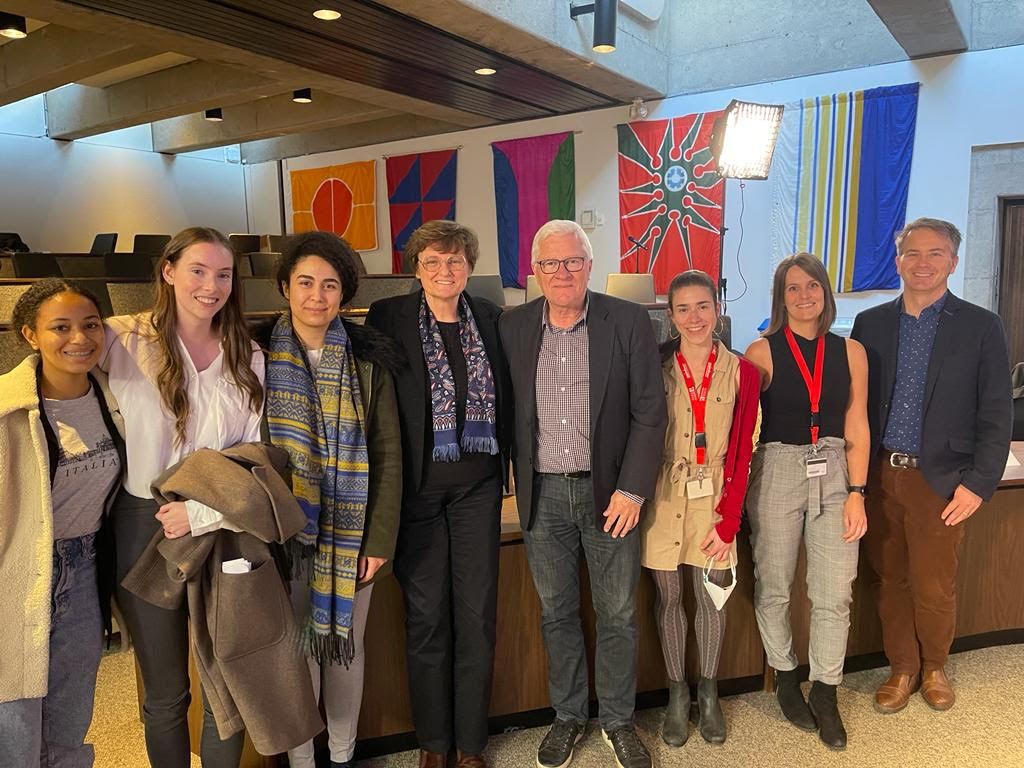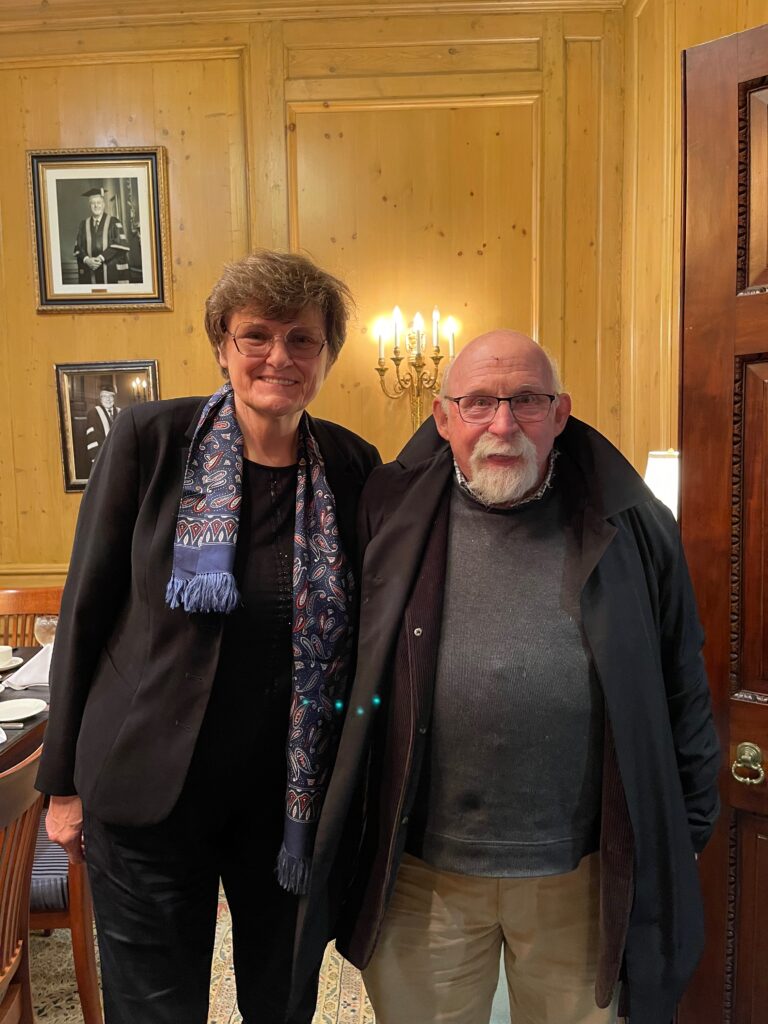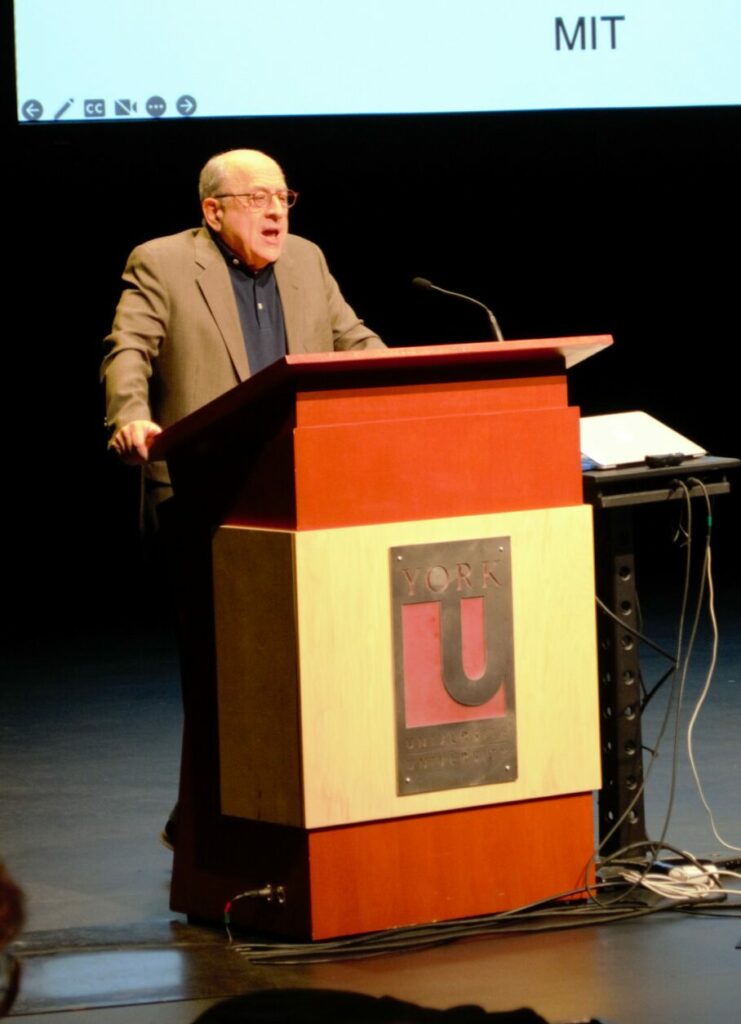By Elaine Smith
Gairdner awardees, chosen by two separate juries of experts, travel across Canada, presenting research seminars and doing outreach to inspire future generations of scientists. After participating in online events during the pandemic, the laureates were able to engage with students and researchers in person this fall.
When Brittney Remnant was invited to introduce two Canada Gairdner International laureates to an audience of high school students visiting York University to hear their lectures on Oct. 28, she was excited.
“I ran to the principal investigator in my lab and asked, ‘Is this real?’” said Remnant, a fourth-year honours biomedical science student at York. “The Gairdner Awards are kind of a big deal.”

The Canada Gairdner Awards are Canada’s only major international scientific prize. Twenty-four per cent of the 402 recipients have gone on to be awarded a Nobel Prize. Awards have been given out since 1957. Today, the Gairdner Foundation awards seven awards annually, which include five Canada Gairdner International Awards for biomedical research, the John Dirks Canada Gairdner Global Health Award and the Canada Gairdner Wightman Award.
“York University has been part of the official Gairdner celebrations for more than a decade,” noted Ronald Pearlman, York professor emeritus and former associate scientific director for the awards program. Pearlman was instrumental in expanding the high school program nationwide.

Gairdner awardees, chosen by two separate juries of experts, travel across Canada, presenting research seminars and doing outreach to inspire future generations of scientists. After participating in online events during the pandemic, the laureates were able to engage with students and researchers in person this fall.
The Gairdner Foundation organized a series of events, “Gairdner Week” in the GTA. The Gairdner Day at York, the University’s most prestigious science event, is co-organized by York and the Gairdner Foundation. York students, faculty and staff had the opportunity to participate in Gairdner Day events on campus, and other Gairdner Week events off campus. The University’s Gairdner participation in celebrating the success of the laureates reflects a commitment to Access to Success – one of six priorites laid out in York’s University Academic Plan – supporting students to reach their full potential, research-intensification and internationalization.
“York hosts a two-pronged program,” said Pearlman. He worked with Jennifer Steeves, associate vice-president, research, and Barbara Edwards, senior policy advisor from the Office of the Vice-President, Research & Innovation, to arrange the Gairdner day events.
“The laureates talk to high school students in the morning, sharing the stories about why they got into science and how they chose their particular research topic. In the afternoon, there is the York Gairdner lecture, where the laureates talk to faculty and research trainees about their research. In between, we have a small luncheon hosted by the president where select students and faculty get a chance to meet the laureates.”

This year, the high school students enjoyed talks by Dr. Stuart Orkin David G. Nathan Distinguished Professor of Pediatrics, Harvard Medical School and Dana-Farber/Boston Children’s Cancer and Blood Disorders Center, and Dr. Katalin Karikó, senior vice-president RNA Protein Replacement Therapies, BioNTech SE. The laureates have each made transformational contributions to improve human health. Karikó’s work, for example, formed the basis for the mRNA vaccines used to prevent COVID-19 infections.
“It was a spectacular experience,” said Remnant. “I arrived early, and Dr. Pearlman introduced me to the laureates; I also went to lunch with them afterward and to the afternoon lectures. When you are in a scientific field, you do science because you love it, and it was nice to see that reflected by scientists at such a high level. They are doing spectacular things to make a difference and are so down to Earth; they don’t do science for fancy awards.”
Kate Duncan, senior planner, on-campus recruitment and events, organizes the high school program. It brings approximately 300 Grade 11 and 12 students from seven schools across the Greater Toronto Area (GTA) to campus along with their biology teachers.
“It’s great because it exposes the students to different science pathways beyond medicine,” Duncan said. “The scientists talk about their careers and the challenges they overcame; their general messages are really important for that age group.”
At the York Gairdner lecture, faculty and research trainees heard from Karikó and Dr. John Dick, the Canada Research Chair in Stem Cell Biology at the University of Toronto and senior scientist at Princess Margaret Cancer Centre.
Yanan Shan, a York PhD student in women’s reproductive health, attended the afternoon program and said, “The two professors gave brilliant talks, and the talk by Katalin Karikó inspired me a lot. … The idea to use modified mRNA for carrying information in vaccines to induce an immune response in the body was very advanced 30 years ago, but she must face a lot of questions and challenges in her study.
“I think it is a great honour and precious opportunity for me to attend this lecture on campus.”
Nilanjuli Ganguli, a York PhD student in environmental studies, was selected to attend another of the Gairdner Week events, a luncheon with the laureates off-campus. She sat with Zulfiqar Bhutta, PhD, winner of the John Dirks Canada Gairdner Global Health Award for his work on improving maternal and child health and nutrition among marginalized and rural populations in South Asia and sub-Saharan Africa.
“To meet someone doing work that is having a global impact is quite meaningful and inspiring,” said Ganguli. “You often think that one person can’t make a change, but if you are smart and strategic about your means and goals, you can make it happen.”
Bhutta gave her his card, and Ganguli, whose research is also based in rural Africa, plans to reach out to him for mentorship.
York Gairdner Day, along with Gairdner Week events, were designed to inspire future laureates at York and GTA high schools.


